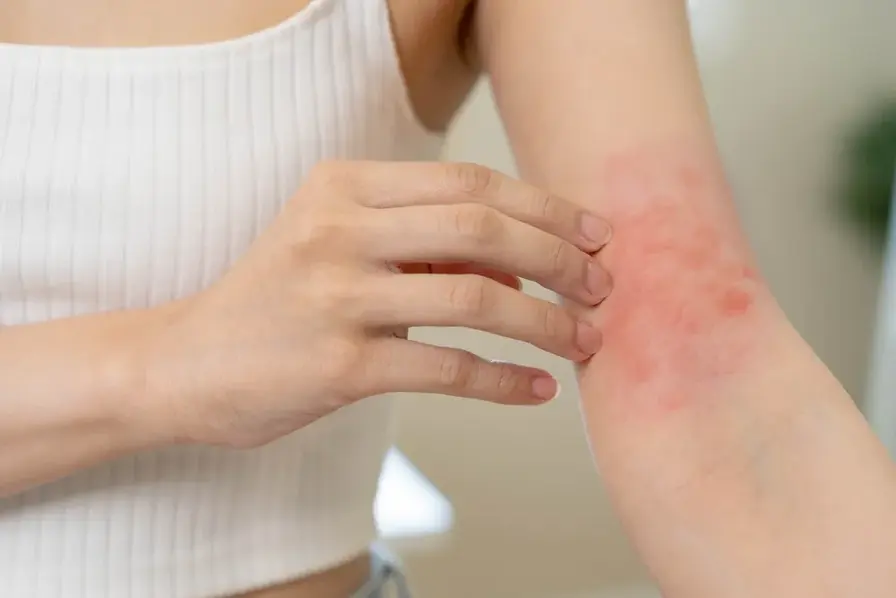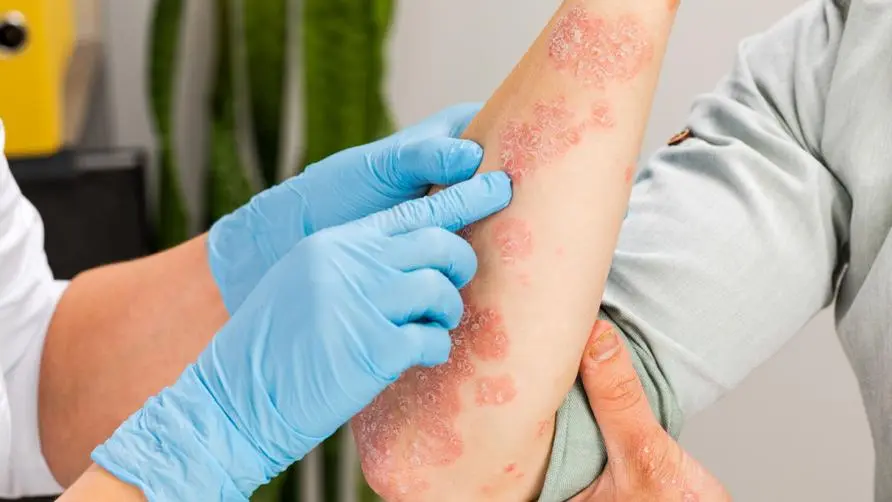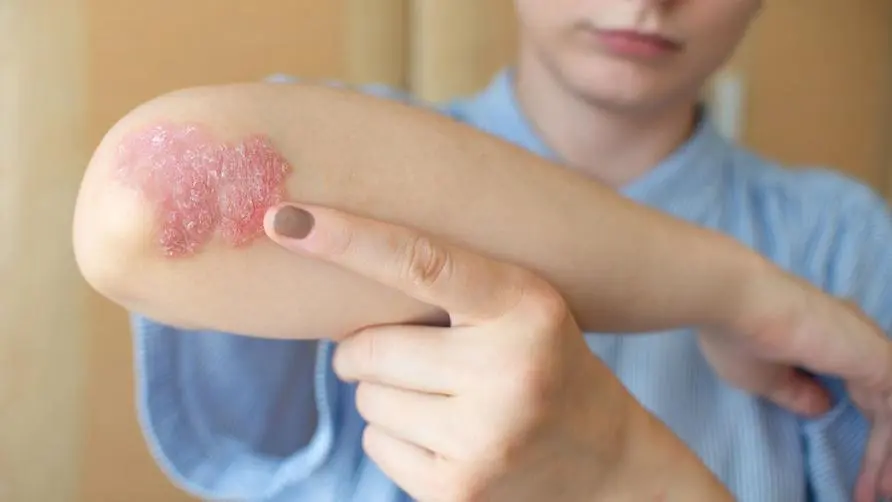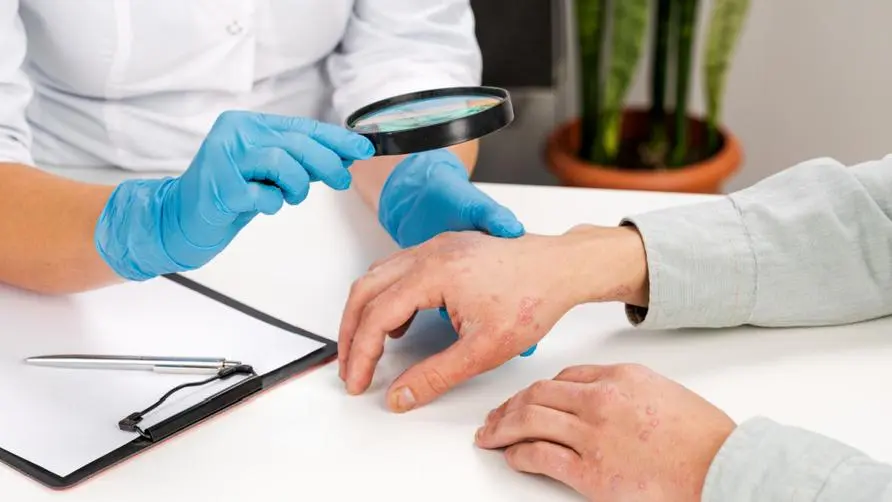The skin hurts like nails all over the body! Doctors reveal the dawn of treatment for "generalized pustular psoriasis": patients are expected to return to normal life
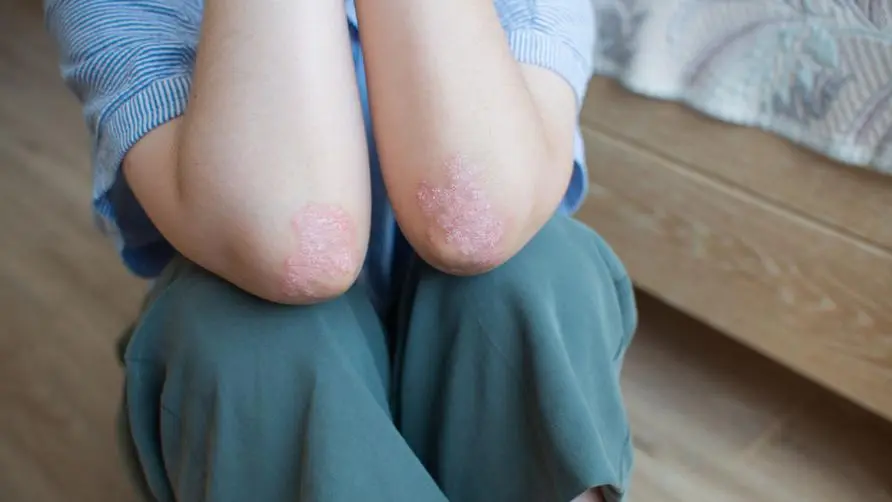
Once an attack occurs, it becomes difficult to maintain a normal life! Typical symptoms of generalized pustular psoriasis
A 15-year-old middle school student suddenly discovered sporadic pustules growing on parts of his body while taking a bath one day. He didn’t take it seriously at first. Unexpectedly, the pustules (pustules) quickly spread all over his body in less than two days. Not only did the affected area feel painful and itchy, but it also The skin was covered with dense nails and she also had a high fever. After being rushed to the hospital, she was diagnosed with Generalized Pustular Psoriasis (GPP) after consultation with a dermatologist. Due to repeated attacks of the disease, large areas of pus and peeling from skin wounds seriously affected his daily life. He had no choice but to interrupt his studies. It was only after effective treatment that his symptoms were slowly controlled and he was able to return to school life.
“You can imagine that boils, commonly known as skin spikes, only have one pustule and it is painful. However, generalized pustular psoriasis has pustules all over the body. Once an attack occurs, it is impossible to maintain a normal life.” Dr. Zeng Hanqi from the Dermatology Department of Kaohsiung Chang Gung Memorial Hospital said that when generalized pustular psoriasis attacks, in addition to erythema and scaling similar to common plaque psoriasis, the most typical symptom is the growth of a large number of pustules all over the body. Some patients experience pain, fever, and fatigue.
If there is no timely and appropriate treatment during an acute attack, the wounds caused by the rupture of skin pustules will increase the risk of infection and even cause sepsis, or the risk of fatal complications such as heart failure due to inflammation of large areas of skin throughout the body. Severe skin diseases bring a heavy burden to the health and life of patients. Experienced dermatologists will be alert if they find patients with similar symptoms.
What causes systemic pustular psoriasis? Past treatments failed to completely clear pustules?
Systemic pustular psoriasis is a rare but very serious severe skin disease. The medical community has found that this disease is related to a gene mutation called interleukin 36 (IL-36) or an abnormality in the inflammatory response pathway in the human body. It is highly correlated, causing the immune system to overreact and induce inflammation. The patient’s skin will quickly develop a large range of sterile pustules. Some patients may be accompanied by other systemic reactions, such as fever, fatigue, etc.
Dr. Zeng Hanqi explained that the frequency of systemic pustular psoriasis varies from person to person, and factors such as stress, infection (such as COVID-19), sudden cessation of systemic steroids, etc. may induce disease attacks. In the past, when systemic pustular psoriasis was unknown, most drugs such as immunomodulators were used, but the effect was limited. It often took more than two weeks to take effect, and it was difficult to completely clear all pustules. Even if The use of biological agents corresponding to interleukin 17 or interleukin 23 for plaque psoriasis may not be able to eliminate pustules quickly and effectively. This is also related to the fact that the real pathogenic mechanism has not been found and the right medicine can be prescribed.
Breakthrough in the treatment of systemic pustular psoriasis! Biological agents respond to key mechanism “IL-36”
Dr. Zeng Hanqi said that fortunately, in recent years, the key therapeutic mechanism of GPP has been discovered, IL-36, and corresponding biological agents have been developed. This can be said to have brought a major breakthrough in the treatment of systemic pustular psoriasis, and he looks forward to helping patients more quickly. Stably control the condition and return to normal life as soon as possible. Currently, the Generalized Pustular Psoriasis Global Diagnostic Tool (GPPGA) is used clinically as an indicator to evaluate the patient’s condition. It is based on the three aspects of pustules, erythema, and desquamation, and is given based on the severity of the symptoms, from not at all to very severe. Scores range from 0 to 4, with higher scores indicating greater severity.
Dr. Zeng Hanqi mentioned that because the general public is still not very aware of the disease of systemic pustular psoriasis, and the symptoms are often confused with infection or drug-induced pustular rash, the average person may not go to the doctor until the pustular score reaches 2 points. , but if it is in the acute attack stage, the pustule score may soar to 3 or 4 points in just one to two days, which is quite critical. The public is urged to seek medical treatment at the dermatology department of the medical center as soon as possible if they find abnormally large-scale pustules on their body. Professional doctors will assist in further differential diagnosis so that they can receive timely and appropriate treatment.
Further reading:


